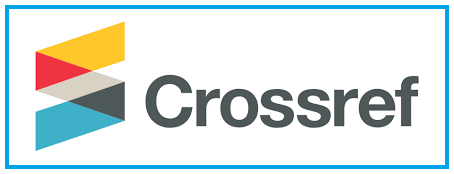THE IMPACT OF GOVERNMENT BUDGETING ON CORRUPTION IN PUBLIC FINANCE: A CROSS-COUNTRY ANALYSIS
Keywords:
Government Effectiveness, Economic Development, Political System Type, Corruption Perceptions Index, Public Finance, Democratic GovernanceAbstract
This study examines the impact of Government Effectiveness, Economic Development, and Political System Type on Corruption Perceptions Index (CPI) scores across various countries for the period 2018-2022. The research uses multiple regression analysis to examine how these three variables affect perceived corruption in public finance. The analysis reveals that Government Effectiveness significantly reduces perceived corruption, as reflected in the CPI scores. This finding highlights the importance of transparent government operations in combating corruption. The study shows that higher GNI per capita is associated with lower perceptions of corruption. This highlights the role of economic growth in improving governance and reducing corruption. Lastly, the research finds that the type of Political System, particularly those characterized by higher political rights scores, significantly influences corruption perceptions. Democratic countries with greater political freedoms tend to have lower CPI scores, indicating reduced corruption. The study’s conclusions have important implications for policymakers, suggesting that enhancing Government Effectiveness, fostering economic development, and strengthening democratic institutions are vital strategies in combating corruption. These findings offer insights for future research, emphasizing the need to explore the interplay of cultural, social, and technological factors with economic and political variables in the context of corruption
Downloads
References
Alfada, Anisah. 2019. “Corruption and Economic Growth in ASEAN Member Countries.” Economics and Finance in Indonesia 65, no. 2: 111. https://doi.org/10.47291/efi.v65i2.628.
Alvarez, R., and M Gomez. 2022. “Global Trends in Corruption Perception.” International Journal of Public Administration 36, no. 4: 298–305.
Bennet, T, and R James. 2018. Corruption and Public Finance: An Analytical Study. Boston: MA: Houghton Mifflin.
Bernhold, Torben, and Niklas Wiesweg. 2021. “Principal-Agent Theory.” A Handbook of Management Theories and Models for Office Environments and Services, no. August: 117–28. https://doi.org/10.1201/9781003128786-10.
Budsaratragoon, Pornanong, and Boonlert Jitmaneeroj. 2020. “A Critique on the Corruption Perceptions Index: An Interdisciplinary Approach.” Socio-Economic Planning Sciences 70, no. November 2019: 100768. https://doi.org/10.1016/j.seps.2019.100768.
Davidson, E., and M. O’Connor. 2018. “Public Finance Management: A Global Overview.” International Journal of Financial Management 38, no. 2: 123–42.
Dollery, Brian, Harry Kitchen, Melville McMillan, and Anwar Shah. 2020. “Local Public, Fiscal and Financial Governance: An International Perspective.” Local Public, Fiscal and Financial Governance: An International Perspective, 1–324. https://doi.org/10.1007/978-3-030-36725-1.
Dziemianowicz, Ryta Iwona, and Aneta Kargol-Wasiluk. 2024. “Examining the Impact of Fiscal Rules on Fiscal Stability in EU Member States.” IZA Journal of Labor Policy 14, no. 1: 30–49.
Elistia, Elistia, and Barlia Annis Syahzuni. 2018. “The Correlation of the Human Development Index (Hdi) Towards Economic Growth (Gdp Per Capita) in 10 Asean Member Countries.” Jhss (Journal of Humanities and Social Studies) 2, no. 2: 40–46. https://doi.org/10.33751/jhss.v2i2.949.
Fitzgerald, H. 2020. “Theories of Political Systems and Their Correlation with Corruption.” Political Science Quarterly 135, no. 2: 245–67.
Gupta, N, and P Sharma. 2018. “Transparency in Government Budgeting: A Statistical Approach.” Public Finance Review 46, no. 4: 670–95.
Harper, C. 2018. Methodologies in Corruption Research. London: Sage Publication.
Johnson, M, and L Thompson. 2020. Government Transparency and Public Trust. New York: NY: Academic Press.
Jung, Hoyong. 2022. “Online Open Budget: The Effects of Budget Transparency on Budget Efficiency.” Public Finance Review 50, no. 1: 91–119. https://doi.org/10.1177/10911421221093412.
Khagram, Sanjeev, Archon Fung, and Paolo de Renzio. 2013. Open Budgets: The Political Economy of Transparency, Participation, and Accountability.
Kim, L. S. 2018. “Advances in Corruption Research: Methods and Techniques.” Journal of Transparency Studies 46, no. 4: 22–47.
Lee, H., and J. Park. 2020. “The Impact of Economic Growth on Governance.” Journal of Governance 13, no. 4: 377–94.
Lewis, D. J. 2020. “The Impact of Economic Policies on Corruption.” Economic Policy Analysis 33, no. 2: 175–90.
Mareno, A, and J Sanchez. 2022. “Economic Development Levels and Their Impacts.” Journal of Global Economics 50, no. 1: 102–18.
Mauro, Paolo. 1995. “Corruption and Growth.” The Quarterly Journal of Economics 110, no. 3: 681–712.
Mungiu-Pippidi, Alina. 2023. “Transparency and Corruption: Measuring Real Transparency by a New Index.” Regulation and Governance 17, no. 4: 1094–1113. https://doi.org/10.1111/rego.12502.
Nabudere, Dani W. 2004. “Traditional and Modern Political Systems in Contemporary Governance in Africa.” Journal of African Elections 3, no. 1: 13–41. https://doi.org/10.20940/jae/2004/v3i1a2.
Nascimento, Alvaro. 2024. The Social Responsibility of the Firm: A Corporate Governance Perspective. IGI Global. https://doi.org/10.4018/979-8-3693-2045-7.ch094.
Nunn, Nathan. 2020. “The Historical Roots of Economic Development.” Science 367, no. 6485. https://doi.org/10.1126/science.aaz9986.
O’Neill, K. 2021. Political Rights and Public Finance: A Global Perspective. Oxford University Press.
O’Reilly, C. A. 2019. “Comparative Public Administration: Corruption Analysis.” Administration & Society 51, no. 7: 1070–93.
Patel, S .K, and R Singh. 2019. “Economic Development and Corruption: A Comparative Analysis.” Journal of Economic Growth 24, no. 3: 207–29. doi:10.1016/j.jecongrowth.2019.05.003.
Ramadhan, Elang Muhammad Rafly, Miryam B Lilian Wijaya, and Budiana Ruslan. 2022. “Corporate Governance and Principal-Agent Theory: A Critical Review.” EKOMBIS REVIEW: Jurnal Ilmiah Ekonomi Dan Bisnis 10, no. 2: 1391–1404. https://doi.org/10.37676/ekombis.v10i2.2108.
Roberts, N., and V Johnson. 2019. “Statistical Methods in Anti-Corruption Studies.” Quantitative Finance 19, no. 5: 831–46.
Saaida, Mohammed. 2023. “Science For All Publications Analyzing Political Systems and Behavior,” no. July. https://doi.org/10.5281/zenodo.10828308.
Singh, K., and R. Patel. 2021. “Government Budget Transparency and Its Effect on Public Policy.” Policy Sciences 54, no. 3: 469–88.
Singleton, Tommie, Aaron Singleton, Jack Bologna, and Robert Lindquist. 2006. Fraud Auditing and Forensic Accounting Third Edition.
Smith, B. C. 1972. “Field Administration and Political Change: The Case of Northern Nigeria.” Administrative Science Quarterly 17, no. 1: 99–109.
Spyromitros, Eleftherios, and Minas Panagiotidis. 2022. “The Impact of Corruption on Economic Growth in Developing Countries and a Comparative Analysis of Corruption Measurement Indicators.” Cogent Economics and Finance 10, no. 1. https://doi.org/10.1080/23322039.2022.2129368.
Svensson, J. 2005. “Eight Questions about Corruption.” Journal of Economic Perspectives 19, no. 3: 19–42.
Wallace, R. 2022. “Political Systems and Their Influence on Economic Development.” World Politics Review 28, no. 1: 50–68.
Xiao, Hanyu, and Xiaohu Wang. 2023. “Fiscal Transparency Practice, Challenges, and Possible Solutions: Lessons from Covid 19.” Public Money and Management. https://doi.org/10.1080/09540962.2023.2175232.
Zhang, Y, and X Wang. 2021. “The Role of Political Systems in Financial Transparency.” Political Studies Review 45, no. 2: 300–318.
Downloads
Published
How to Cite
Issue
Section
License
Copyright (c) 2024 Komilov Islom Eldor Ugli, R. Nelly Nur Apandi, H. A Hakimov

This work is licensed under a Creative Commons Attribution-ShareAlike 4.0 International License.









